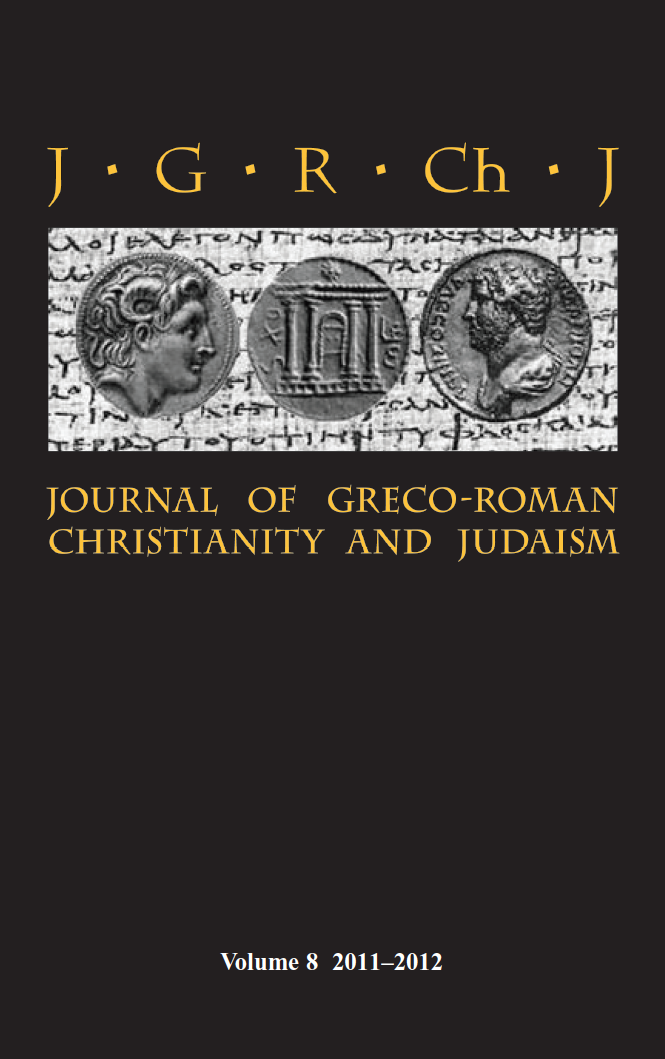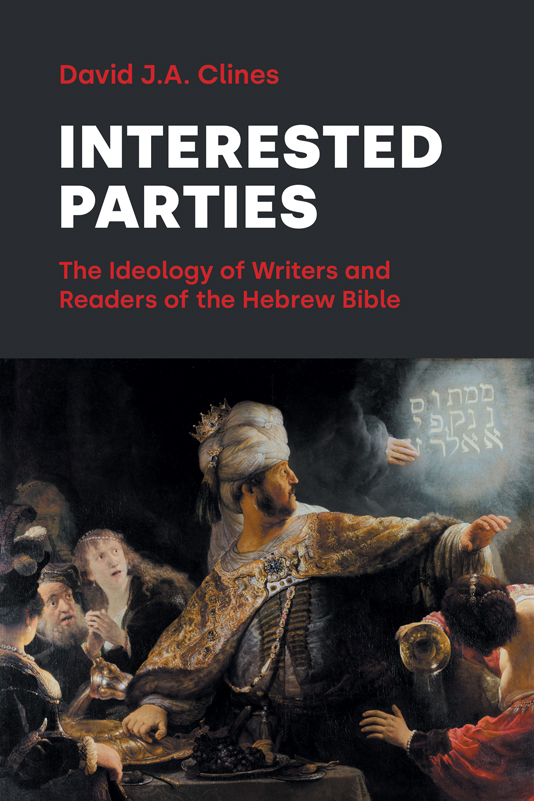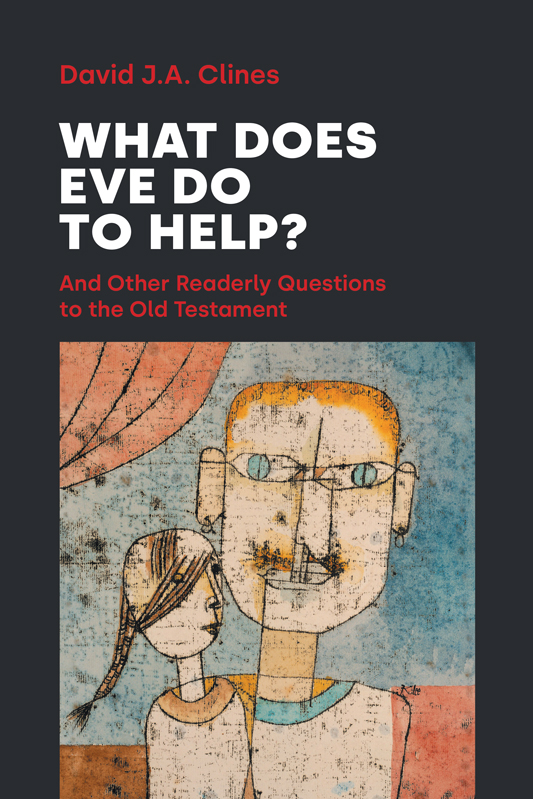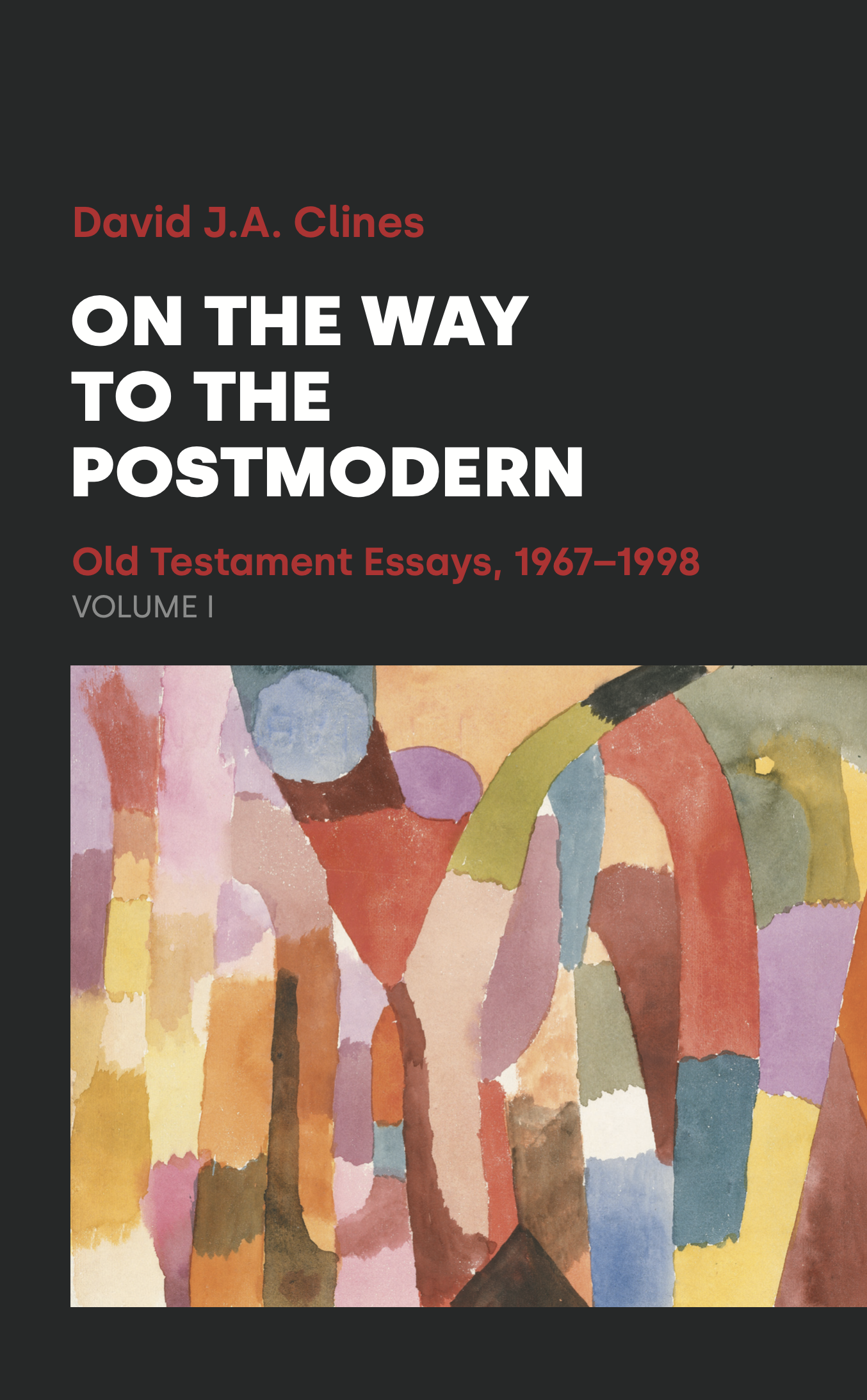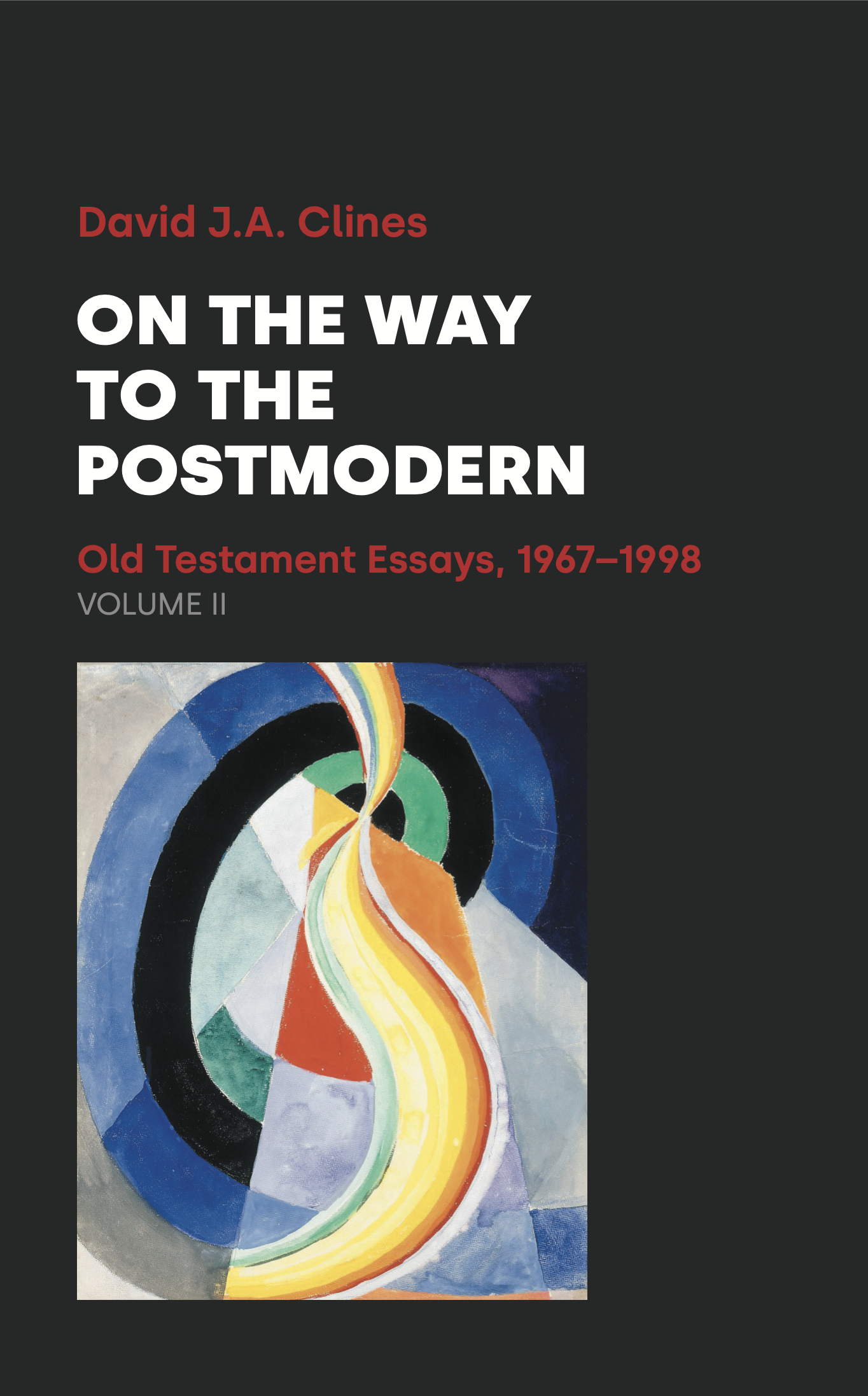The Dictionary of Classical Hebrew, Volume 1 Aleph
Published: Dec 1993
£150.00
The Dictionary of Classical Hebrew is a completely new and innovative dictionary.
Unlike previous dictionaries, which have been dictionaries of biblical Hebrew, this is the first dictionary of the classical Hebrew language to include the Bible, Dead Sea Scrolls, and all the other known Hebrew inscriptions and manuscripts.
This Dictionary covers the period from the earliest times to 200 CE. It lists and analyses every occurrences of each Hebrew word that occurs in texts of that period, with an English translation of every Hebrew word and phrase cited.
Among its special features are: a list of the non-biblical texts cited (especially the Dead Sea Scrolls), a word frequency index for each letter of the alphabet, a substantial bibliography (from Volume 2 onward) and an English–Hebrew index in each volume.
The Dictionary of Classical Hebrew, Volume 1 Aleph
£150.00
The Dictionary of Classical Hebrew is a completely new and innovative dictionary.
Unlike previous dictionaries, which have been dictionaries of biblical Hebrew, this is the first dictionary of the classical Hebrew language to include the Bible, Dead Sea Scrolls, and all the other known Hebrew inscriptions and manuscripts.
This Dictionary covers the period from the earliest times to 200 CE. It lists and analyses every occurrences of each Hebrew word that occurs in texts of that period, with an English translation of every Hebrew word and phrase cited.
Among its special features are: a list of the non-biblical texts cited (especially the Dead Sea Scrolls), a word frequency index for each letter of the alphabet, a substantial bibliography (from Volume 2 onward) and an English–Hebrew index in each volume.
Journal of Greco-Roman Christianity and Judaism
£80.00
Volume 1 was for 2000, Volume 2 was for 2001 —2005, Volume 3 was for 2006, Volume 4 was for 2007, Volume 5 was for 2008, Volume 6 was for 2009, Volume 7 was for 2010 and Volume 8 was for 2011–2012, Volume 9 was for 2013, Volume 10 was for 2014 and Volume 11 was for 2015. Volumes 12-ongoing: Wipf & Stock Publishers.
The scope of JGRChJ is the texts, language and cultures of the Graeco-Roman world of early Christianity and Judaism. The papers published in JGRChJ are designed to pay special attention to the 'larger picture' of politics, culture, religion and language, engaging as well with modern theoretical approaches.
Journal of Greco-Roman Christianity and Judaism
£80.00
Volume 1 was for 2000, Volume 2 was for 2001 —2005, Volume 3 was for 2006, Volume 4 was for 2007, Volume 5 was for 2008, Volume 6 was for 2009, Volume 7 was for 2010 and Volume 8 was for 2011–2012, Volume 9 was for 2013, Volume 10 was for 2014 and Volume 11 was for 2015. Volumes 12-ongoing: Wipf & Stock Publishers.
The scope of JGRChJ is the texts, language and cultures of the Graeco-Roman world of early Christianity and Judaism. The papers published in JGRChJ are designed to pay special attention to the 'larger picture' of politics, culture, religion and language, engaging as well with modern theoretical approaches.
Interested Parties: The Ideology of Writers and Readers of the Hebrew BIble
Price range: £17.50 through £50.00
There is a twin focus in this volume. The title of a keynote essay—‘Why Is There a Song of Songs, and What Does It Do to You If You Read It?’—hints at it. The focus is equally on the ideologies of the writers of the Hebrew Bible, who brought the text into being, and on the ideologies of its readers, who are being shaped by the text at the same moment that they are shaping it in their own image.
Uncovering the ideologies of writers are readers is the project of this book, calling for a step beyond the usual scholarly goal of understanding—to a practice of the art of critique.
Among the other chapters in this challenging book are:
• The Ten Commandments: Reading from Left to Right
• Metacommentating Amos
• Haggai’s Temple, Constructed, Deconstructed and Reconstructed
• David the Man: The Construction of Masculinity in the Hebrew Bible
• Psalm 2 and the MLF (Moabite Liberation Front)
• God in the Pentateuch: Reading against the Grain
This is a reprint of the original 1995 edition.
Interested Parties: The Ideology of Writers and Readers of the Hebrew BIble
Price range: £17.50 through £50.00
There is a twin focus in this volume. The title of a keynote essay—‘Why Is There a Song of Songs, and What Does It Do to You If You Read It?’—hints at it. The focus is equally on the ideologies of the writers of the Hebrew Bible, who brought the text into being, and on the ideologies of its readers, who are being shaped by the text at the same moment that they are shaping it in their own image.
Uncovering the ideologies of writers are readers is the project of this book, calling for a step beyond the usual scholarly goal of understanding—to a practice of the art of critique.
Among the other chapters in this challenging book are:
• The Ten Commandments: Reading from Left to Right
• Metacommentating Amos
• Haggai’s Temple, Constructed, Deconstructed and Reconstructed
• David the Man: The Construction of Masculinity in the Hebrew Bible
• Psalm 2 and the MLF (Moabite Liberation Front)
• God in the Pentateuch: Reading against the Grain
This is a reprint of the original 1995 edition.
What Does Eve Do to Help? And Other Readerly Questions to the Old Testament
£50.00
Readerly questions are raised when readers are explicitly and programmatically brought into the process of interpreting texts. Traditionally, the reader and readerly interest and identities have been screened out when we have set about interpreting texts, and we have set our sights on attaining an interpretation that should be as objective as possible.
Things are rather different now. Not only is quest for objective interpretation seen as chimaera, but the rewards of unabashed readerly interpretations that foreground the process of reading and the context of the reader have now been shown to be very well worth seeking. That reader-response approach characterizes this collection of six essays, prefaced by an introduction to reader-response criticism.
The essays for the most part read in their original form to meetings of the Society of Biblical Literature, are: What Does Eve Do To Help? and other Irredeemably Androcentric Orientations in Genesis 1-3; What Happens in Genesis; The Ancestor in Danger: But Not the Same Danger; The Old Testament Histories: A Reader's Guide; Deconstructing the Book of Job; and Nehemiah Memoir: The perils of Autobiography.
This volume is a reprint of the original 1990 edition.
What Does Eve Do to Help? And Other Readerly Questions to the Old Testament
£50.00
Readerly questions are raised when readers are explicitly and programmatically brought into the process of interpreting texts. Traditionally, the reader and readerly interest and identities have been screened out when we have set about interpreting texts, and we have set our sights on attaining an interpretation that should be as objective as possible.
Things are rather different now. Not only is quest for objective interpretation seen as chimaera, but the rewards of unabashed readerly interpretations that foreground the process of reading and the context of the reader have now been shown to be very well worth seeking. That reader-response approach characterizes this collection of six essays, prefaced by an introduction to reader-response criticism.
The essays for the most part read in their original form to meetings of the Society of Biblical Literature, are: What Does Eve Do To Help? and other Irredeemably Androcentric Orientations in Genesis 1-3; What Happens in Genesis; The Ancestor in Danger: But Not the Same Danger; The Old Testament Histories: A Reader's Guide; Deconstructing the Book of Job; and Nehemiah Memoir: The perils of Autobiography.
This volume is a reprint of the original 1990 edition.
On the Way to the Postmodern: Volume I
£50.00
In the 50 chapters of these two volumes, David J. A. Clines presents a series of discourses, spanning three decades, from an increasingly postmodern perspective. Rather than using only methods of deconstruction, he combines traditional methods with postmodern ideas of analysis, resulting in a substantial reading of the Hebrew Bible.
Clines’s selected sequence of articles and papers—ten of them not previously published—displays a golden thread of a scholar’s journey in biblical interpretation. Some of the papers, like 'The Evidence for an Autumnal New Year in Pre-exilic Israel Reconsidered', are far from postmodern in their outlook, and sit in intriguing juxtaposition with others such as 'The Postmodern Adventure in Biblical Studies'.
The essays are organized in eight sections;
- Method, Literature, History (Vol. I.),
- Theology, Language, Psalms, Job, and, entertainingly, Divertimenti (Vol. II). They include 'Reading Esther from Left to Right', 'Beyond Synchronic Diachronic', 'Story and Poem: The Old Testament as Literature and as Scripture', 'In Search of the Indian Job', and 'Philology and Power'.
Further items in this first volume to highlight are:
- Possibilities and Priorities of Biblical Interpretation in an International Perspective
- What Has (and Has Not) Happened at SBL International Meetings
- The Force of the Text: A Response to Tamara C. Eskenazi
- In Quest of the Historical Mordecai
On the Way to the Postmodern: Volume I
£50.00
In the 50 chapters of these two volumes, David J. A. Clines presents a series of discourses, spanning three decades, from an increasingly postmodern perspective. Rather than using only methods of deconstruction, he combines traditional methods with postmodern ideas of analysis, resulting in a substantial reading of the Hebrew Bible.
Clines’s selected sequence of articles and papers—ten of them not previously published—displays a golden thread of a scholar’s journey in biblical interpretation. Some of the papers, like 'The Evidence for an Autumnal New Year in Pre-exilic Israel Reconsidered', are far from postmodern in their outlook, and sit in intriguing juxtaposition with others such as 'The Postmodern Adventure in Biblical Studies'.
The essays are organized in eight sections;
- Method, Literature, History (Vol. I.),
- Theology, Language, Psalms, Job, and, entertainingly, Divertimenti (Vol. II). They include 'Reading Esther from Left to Right', 'Beyond Synchronic Diachronic', 'Story and Poem: The Old Testament as Literature and as Scripture', 'In Search of the Indian Job', and 'Philology and Power'.
Further items in this first volume to highlight are:
- Possibilities and Priorities of Biblical Interpretation in an International Perspective
- What Has (and Has Not) Happened at SBL International Meetings
- The Force of the Text: A Response to Tamara C. Eskenazi
- In Quest of the Historical Mordecai
On the Way to the Postmodern: Volume II
£50.00
In the 50 chapters of these two volumes, David J. A. Clines presents a series of discourses, spanning three decades, from an increasingly postmodern perspective. Rather than using only methods of deconstruction, he combines traditional methods with postmodern ideas of analysis, resulting in a substantial reading of the Hebrew Bible.
Clines’s selected sequence of articles and papers—ten of them not previously published—displays a golden thread of a scholar’s journey in biblical interpretation. Some of the papers, like 'The Evidence for an Autumnal New Year in Pre-exilic Israel Reconsidered', are far from postmodern in their outlook, and sit in intriguing juxtaposition with others such as 'The Postmodern Adventure in Biblical Studies'.
The essays are organized in eight sections;
- Method, Literature, History (Vol. I.),
- Theology, Language, Psalms, Job, and, entertainingly, Divertimenti (Vol. II). They include 'Reading Esther from Left to Right', 'Beyond Synchronic Diachronic', 'Story and Poem: The Old Testament as Literature and as Scripture', 'In Search of the Indian Job', and 'Philology and Power'.
Further items in this second volume to highlight are:
Sacred Space, Holy Places and Suchlike
The Dictionary of Classical Hebrew
Universal Dominion in Psalm 2?
False Naivety in the Prologue to Job
New Directions in Pooh Studies.
This volume is a reprint of the original 1998 edition.
On the Way to the Postmodern: Volume II
£50.00
In the 50 chapters of these two volumes, David J. A. Clines presents a series of discourses, spanning three decades, from an increasingly postmodern perspective. Rather than using only methods of deconstruction, he combines traditional methods with postmodern ideas of analysis, resulting in a substantial reading of the Hebrew Bible.
Clines’s selected sequence of articles and papers—ten of them not previously published—displays a golden thread of a scholar’s journey in biblical interpretation. Some of the papers, like 'The Evidence for an Autumnal New Year in Pre-exilic Israel Reconsidered', are far from postmodern in their outlook, and sit in intriguing juxtaposition with others such as 'The Postmodern Adventure in Biblical Studies'.
The essays are organized in eight sections;
- Method, Literature, History (Vol. I.),
- Theology, Language, Psalms, Job, and, entertainingly, Divertimenti (Vol. II). They include 'Reading Esther from Left to Right', 'Beyond Synchronic Diachronic', 'Story and Poem: The Old Testament as Literature and as Scripture', 'In Search of the Indian Job', and 'Philology and Power'.
Further items in this second volume to highlight are:
Sacred Space, Holy Places and Suchlike
The Dictionary of Classical Hebrew
Universal Dominion in Psalm 2?
False Naivety in the Prologue to Job
New Directions in Pooh Studies.
This volume is a reprint of the original 1998 edition.


